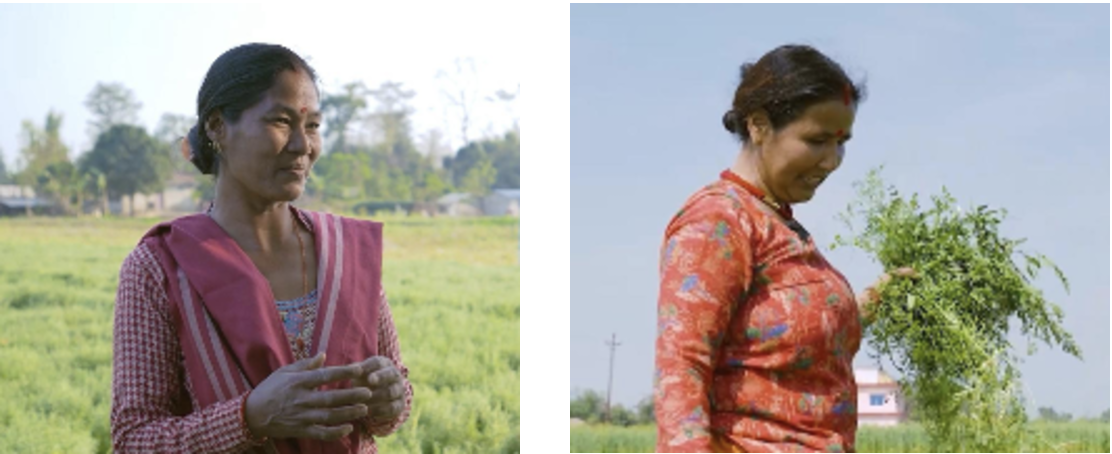Women Farmers Benefit from Private Sector Partnership and Learn New Ways of Growing Lentil in Nepal
From the November 2024 Newsletter
Manju Kumari Chaudhary and Chandrakala Buda have spent a collective 40 years growing lentil on small plots in the Lumbini province of Nepal. Each year they have been discouraged by disease, weather, markets, and pricing challenges with a crop important to their daily diet and dear to the people of Nepal.
Enter private sector agricultural company Muktinath Krishi and a pilot program led by the Feed the Future Innovation Lab for Legume Systems Research managed by Michigan State University and funded through the USAID Nepal Mission. The project, “USAID Nepal Strengthening Lentil Activity” seeks to build the Nepal lentil sector back to its former glory and beyond.
Last season Manju and Chandrakala participated in a unique program that provided the women training on good agricultural practices (GAP) in lentil. Through demonstration trials, they experienced first-hand the earning potential of lentil.
“My yield on the conventional plot was 645 kg/ha while the yield from the demo plot was 1208 kg/ha,” explains Manju. Chandrakala shares that, “the yield from the demo plot was 1560 kg/ha, while the yield from the conventional plot was 696 kg/ha.”
Overall, 12 farmers in the Lumbini province participated in the program with plots ranging from .12 to .27 Ha. The average yield in the demo plots equated to 1086 Kg per ha which was 160% higher than the conventional plots. While the demo plot required higher investment in labor, inputs, and machinery, the increased yield resulted in 68% higher revenue compared to the traditional plots.
Lentil is an important staple crop in Nepal for nutrition, soil health, but also with strong potential as both a domestic and export commodity. However, crop yields have become stagnant with the low productivity attributed mainly to stressed environmental conditions and agronomic practices. Lentils occupy 60% of the total grain legume area and production in Nepal, making the country the sixth largest producer of lentils, yet area planted is decreasing each year.
“My participation in the demo trial has created a positive impact on me and my family members. I've gained new skills and knowledge that have improved our farming practices, leading to better yields. This has increased our income and allowed us to invest more in our family's needs and live a better-quality life,” shares Chandrakala.
Manju shares what higher income can mean for her family. “The first priority would be on health, second on children’s education, and third is better farming equipment, seeds, fertilizers, and other inputs need to increase the yield. This will help us build a secure future and improve our overall quality of life.”
Both women are committed to following GAP and plan to increase the amount of land they dedicate to lentils as they strive for sustainable impact for their families and communities.




 Print
Print Email
Email




